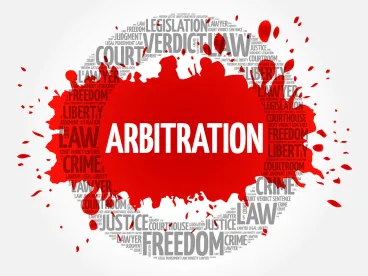On June 26, 2019, Southern District of New York Judge Denise Cote granted a motion to compel arbitration of a plaintiff’s sexual harassment claims finding that the New York State prohibition on mandatory arbitration of sexual harassment claims is preempted by the Federal Arbitration Act (“FAA”). As we mentioned in our blog upon this law’s enactment, the United States Supreme Court has routinely held that state laws expressly identifying a category of non-arbitrable state law claims are preempted by the FAA. In Latif v. Morgan Stanley & Co., the Southern District followed the Supreme Court and found the New York ban on mandatory arbitration of sexual harassment claims unenforceable.
New York Law & Latif v. Morgan Stanley
New York first enacted its ban on mandatory arbitration of sexual harassment claims in 2018 as part of the 2019 State Budget. The statute amended the New York Civil Practice Law and Rules (“CPLR”) to prohibit contracts requiring the submission of sexual harassment claims to mandatory binding arbitration. In June, New York expanded this prohibition to mandatory arbitration of all harassment claims (see our previous blog).
Plaintiff Mahmoud Latif signed an agreement providing that “statutory discrimination, harassment, and retaliation claims” would be resolved in “final and binding arbitration.” Latif alleges that he was subjected to sexual harassment and was eventually terminated in retaliation for complaining about the alleged harassment. Latif relied on CPLR § 7515 in his opposition to the defendant’s motion to compel arbitration of his sexual harassment claims.
New York Law Preempted by the FAA
The Supreme Court has routinely held that state laws expressly identifying a category of state law claims as non-arbitrable are preempted by the FAA. Judge Cote applied the analysis laid out by the Supreme Court in AT&T Mobility LLC v. Concepcion, 563 U.S. 333, 341 (2011) (“When state law prohibits outright the arbitration of a particular type of claim, the analysis is straightforward: The conflicting rule is displaced by the FAA.”). Thus, the court held that CPLR § 7515 was “inconsistent with the FAA” because it specifically prohibited arbitration of sexual harassment claims.
Latif argued that CPLR § 7515 was intended to provide general protection for victims of sexual harassment rather than to single out arbitration. However, the court found these arguments “unavailing.” The court rejected the arguments that CPLR § 7515 created a “generally applicable contract defense,” which can be permitted under the FAA, because the plain text of the law singled out arbitration agreements.
The court also rejected Latif’s arguments based on New York’s interest in addressing workplace harassment and thus CPLR § 7515 is a ground in equity for the revocation of a contract. Again, finding that CPLR § 7515 presented no generally applicable contract defense, the court held that the statute was preempted by the FAA.
In a footnote, Judge Cote also mentioned that the mandatory arbitration ban passed in June is also preempted by the FAA for similar reasons.
We expect federal courts to continue to apply the Supreme Court’s FAA jurisprudence consistently. However, we will continue to monitor this case and provide updates if needed.



 />i
/>i

